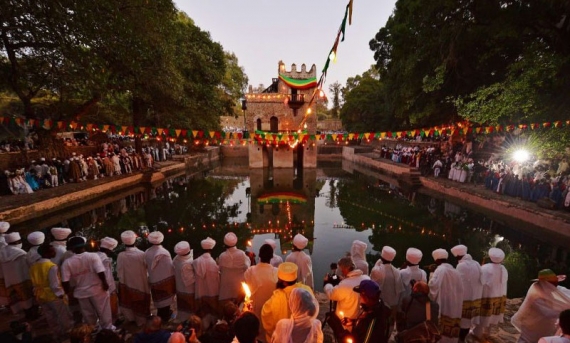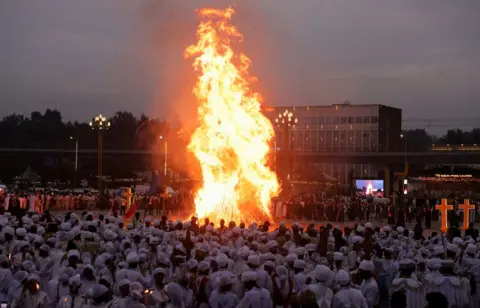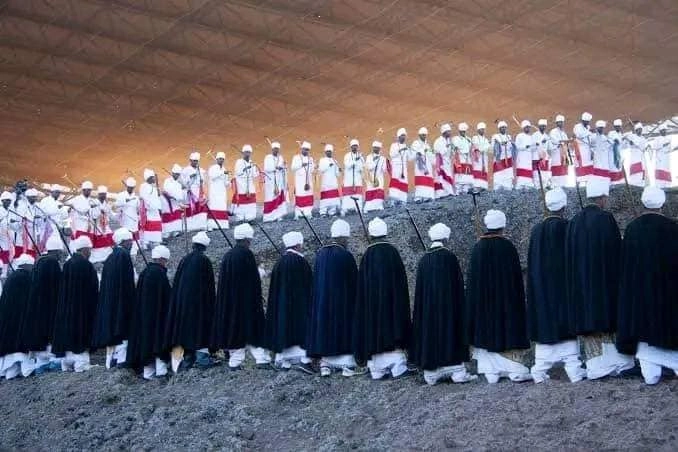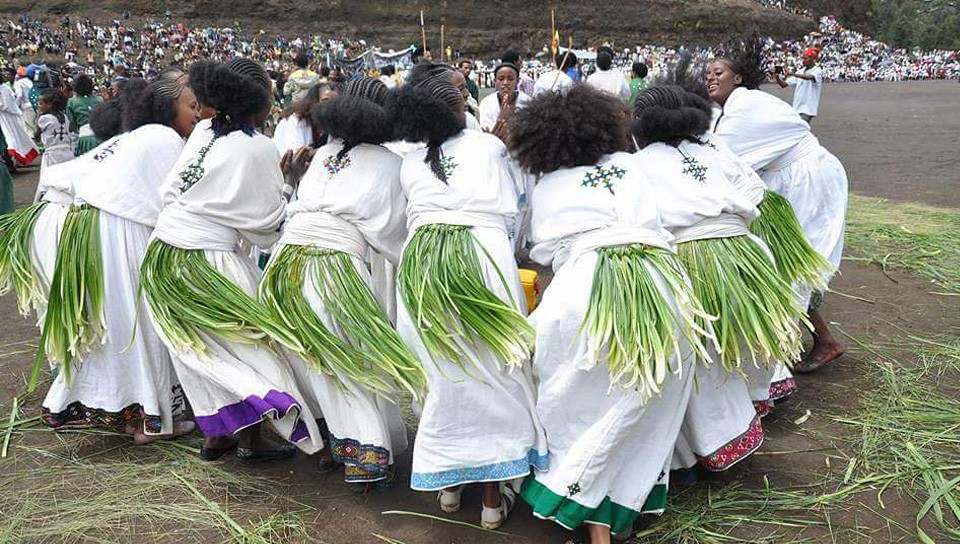Festivals & Cultural Experiences

Timket (Epiphany)
Timket, celebrated every January, is one of Ethiopia’s most important and joyful religious festivals. It commemorates the baptism of Christ in the Jordan River and transforms cities across the country into rivers of faith and color. In Addis Ababa, Gondar, and Lalibela, processions of priests dressed in vibrant robes carry replicas of the Ark of the Covenant (Tabots) to water sources. At dawn, a dramatic blessing of the waters takes place, and thousands of worshippers gather to sing, dance, and celebrate. For travelers, Timket is a spiritual spectacle like no other — a living connection to Ethiopia’s sacred heart.
Meskel (Finding of the True Cross)
Held every September, Meskel marks the discovery of the True Cross by Queen Helena in the 4th century. The festival is celebrated with the lighting of massive bonfires known as Demera, symbolizing the smoke that led to the cross’s location. In Addis Ababa’s Meskel Square, crowds fill the streets in a blaze of firelight, while priests chant and carry crosses adorned with flowers. The sight of thousands gathered around burning pyres is both moving and unforgettable, a tradition that has been observed in Ethiopia for over 1,600 years.


Genna (Ethiopian Christmas)
Ethiopia celebrates Christmas, or Genna, on January 7th, according to the ancient Julian calendar. The holiday is marked by candlelit processions, midnight church services, and communal feasting. In Lalibela, pilgrims dressed in white gather around the rock-hewn churches for an all-night vigil, singing hymns that echo through the carved stone. Genna is also known for its traditional game, similar to field hockey, which is played in villages across the country. For visitors, Genna is a warm, spiritual, and communal experience that reflects Ethiopia’s enduring Christian traditions.
Ashenda (Women’s Festival in the North)
Unique to the northern regions of Tigray and Amhara, Ashenda is a celebration of womanhood, joy, and freedom. Young women dress in colorful traditional outfits, braid their hair in intricate styles, and adorn themselves with beaded jewelry. Carrying drums and singing festive songs, they go from house to house, spreading cheer and receiving gifts. The name Ashenda refers to the tall grass that women wear as decoration during the festival. This event, usually celebrated in August, is not only a cultural spectacle but also a powerful expression of community and identity.


